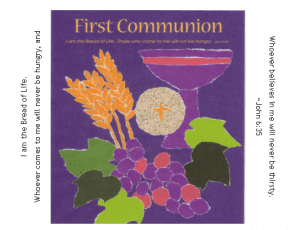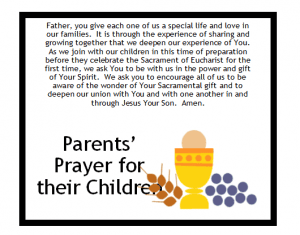Eucharist – Body of Christ, Broken for the World (USCCB)
The Eucharist is “the source and summit of the Christian life” (Lumen Gentium {Dogmatic Constitution on the Church} no. 11). In the Eucharistic Liturgy and our prayer before the Blessed Sacrament, we encounter God’s presence in personal and profound ways. But the Eucharist is also social, as Pope Benedict XVI reminds us in Deus Caritas Est (God Is Love): “A Eucharist which does not pass over into the concrete practice of love is intrinsically fragmented” (no. 14). The Eucharist, celebrated as a community, teaches us about human dignity, calls us to right relationship with God, ourselves, and others. As the Body of Christ, it sends us on mission to help transform our communities, neighborhoods, and world. Church teaching, rooted in both Scripture and Tradition, emphasizes both the personal and social natures of the Eucharist. This guide highlights Popes Paul VI, John Paul II, and Benedict XVI’s writings about the social nature of the Eucharist. Their words challenge and move us to encounter Christ in the Eucharist in ways both personal and social.
- We experience the Eucharist as a community.
- The Eucharist awakens us to our own dignity and to that of others.
- The Eucharist unifies and heals divisions.
- The Eucharist sensitizes us to those who suffer.
- The Eucharist moves and inspires us to respond.
- Eucharist-inspired love allows us to live out our Christian vocation.
- The Eucharist challenges us to recognize and confront structures of sin.
- The Eucharist prepares us for mission.
- The Eucharist propels us forth to transform the world.
“Let the children
come to me, and
do not prevent them;
for the kingdom of heaven
belongs to such as these”.
~ Matthew 19:14

At the heart of who we are as Catholics is the Eucharist. At Saint Thomas, students begin preparing for First Holy Communion in 2nd grade. Sign, symbol, tradition and anticipation all blend to create a true desire within our children to celebrate the mystery of transubstantiation.
Joining their parents to receive our Lord’s sacrifice for the first time, our children truly grasp the meaning of this special day in their Christian lives.
First Holy Communion Registration Form
Reconciliation Guidelines for First Holy Communion
- Candidate must be baptized and have received the Sacrament of Reconciliation.
- Parent(s) must be a registered and active member of Saint Thomas the Apostle Parish (pastoral exception if cleared ahead of time with the pastor).*
- Parent(s) and candidate must be regularly attending Mass.*
- Candidate must participate in one academic year of catechesis/religious instruction prior to the year of catechesis/religious instruction and sacramental preparation for First Holy Communion. (Both first grade and second grade is considered First Holy Communion Sacramental preparation.)
- Candidate must participate in the sacramental preparation determined by the Director of Faith Formation.

Immediate preparation for the Sacrament of First Holy Communion traditionally occurs in second grade. Children must be baptized and have received the sacrament of penance*. Parent(s) must be a registered member of Saint Thomas the Apostle Parish. Parent(s) and child must be regularly attending Mass. The child must participate in one academic year of catechesis/religious education one prior to the year of catechesis/religious instruction and sacramental preparation for Eucharist. Finally, parents and child must participate in all of the sacramental preparation determined by the Director of Faith Formation. This preparation consists of classroom instruction, parent meeting with children from Saint Thomas the Apostle School and Religious Education programs, and the all day retreat with the children.
